Isolated Vladimir Putin faces ‘quiet rebellion’ in the Kremlin
Invading Ukraine has cost the Russian leader key allies abroad and made enemies at home. His image as a master strategist has been shattered, leaving him arguably weaker than at any time in his 23-year rule.
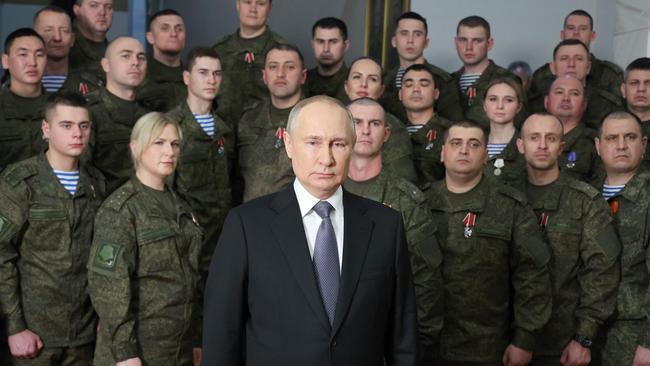
In February last year, as President Putin announced his invasion of Ukraine with a chilling televised speech, the Kremlin was so confident of success that the first wave of Russian troops was ordered to pack special uniforms for a victory parade in Kyiv.
It did not take long for Putin’s plans to unravel. Almost a year into the war, tens of thousands of Russian soldiers have been killed, hundreds of thousands of men have fled the country to avoid conscription and some Russian regions bordering Ukraine are coming under almost daily shelling. Over the past two weeks, Russia’s forces have suffered their highest rate of casualties since the war began, according to the British Ministry of Defence.
In place of triumphant speeches in the Ukrainian capital, Putin’s image as a master strategist has been shattered, leaving him arguably weaker than at any time during his 23-year rule. His failure to secure a swift victory has cost him the respect and unquestioning loyalty of top officials, said Gennady Gudkov, a former KGB colonel and MP who lives in exile.
“Putin can’t rule like before. He has made lots of stupid mistakes and everyone from the general staff of the armed forces to the leadership of the FSB [security service] to his close aides understands this,” he said.
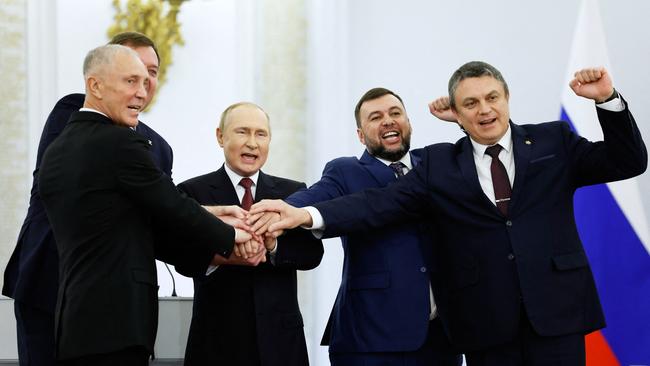
“[Officials] are becoming bolder and brasher and infighting has escalated. There is no longer the subordination to Putin that there was a year ago,” said Gudkov, who cited conversations with relatives of Kremlin insiders, aides to political figures in Moscow and unnamed Russian tycoons. “This is a quiet rebellion against him.”
Tatiana Stanovaya, a political analyst whose research focuses on the Kremlin, said that while there was little chance that officials would be brave enough to directly criticise Putin, many were disillusioned by his disastrous handling of the war. “Lots of them used to respect him,” she said. “Not any more.”
Russia’s economy is straining under the weight of western sanctions, including a price cap on Russian oil. Last month the nation recorded a budget deficit of 1.76 trillion roubles, its biggest for January since Putin came to power in 2000. Sanctions have also deprived members of the Russian elite of foreign assets, including property in Europe, while making it much harder for their children to study at prestigious western schools and universities.
Yet Putin remains assured in his belief that he is fulfilling his “historical mission” to bring Kyiv under Moscow’s control, said Fyodor Lukyanov, who heads Russia’s Council for Foreign and Defence Policy, which sometimes advises the Kremlin. The council is not thought to have been consulted about the decision to invade Ukraine, with the key decisions being taken by Putin and a small group of hardliners.
Despite the setbacks that his army has suffered in Ukraine, Putin appeared at ease with himself when he answered questions at a forum in late October, said Lukyanov, who moderated the discussions. “He was confident and relaxed as never before,” he said. “There was no irritation at all, whatever questions were asked. He seems to be 200 per cent sure that what he is doing is necessary and that it was inevitable. That we are on the right side of history, whatever happens.”
Lukyanov revealed that many Russian politicians were puzzled by why the Kremlin had not retaliated “properly” against the supply of western weapons to Ukraine. Putin warned at the start of the war that western countries that tried to come to Ukraine’s aid would “face consequences greater than any you have faced in history”. He has also threatened to use nuclear weapons to defend occupied territory in Ukraine that Russia claims as its own.
The Kremlin’s nuclear rhetoric was a key factor in the recent decision by a panel of international scientists to move the hands of the Doomsday Clock, which illustrates threats to humanity’s existence, to 90 seconds to midnight, the closest it has been to zero hour since it was set up in 1947.
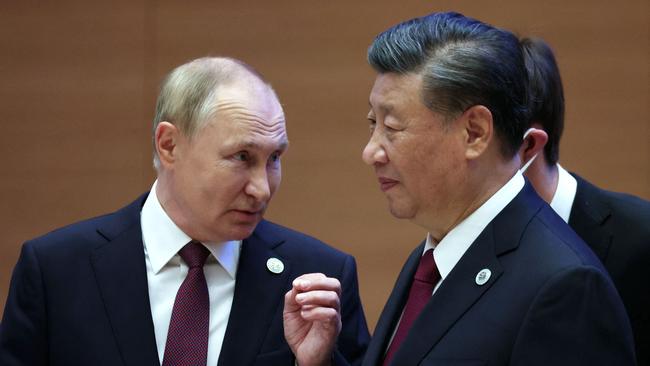
“Russia could have retaliated not just with nuclear arms, but with massive cyberattacks or by targeting supply routes [for western weapons],” Lukyanov said. “The problem is that the longer Russia doesn’t respond, the more likely it is that this response will need to be extremely powerful to demonstrate commitment. That it will use the ultimate argument.”
Suggestions that Putin is being misled by his advisers about the grim realities of the war appeared to be off the mark, Lukyanov added. “He didn’t look like a person who is not aware of what is happening. He looked like he has information. But this information doesn’t bother him too much.”
Once portrayed by Russian propaganda as a straight-talking man of the people, Putin is now an isolated figure. On Orthodox Christmas Eve, he attended mass on his own at a Kremlin cathedral that had been cleared of all other worshippers. In December, he abruptly cancelled his annual press conference and televised question-and-answer session with the Russian people, as well as his state of the nation address to parliament.
Critics allege that Putin is reluctant to answer tough questions on the war because he knows he cannot provide meaningful answers. “A year on, Putin has nothing to reply to the main question: How does he see a way out of the situation he created?” Leonid Volkov, the former chief aide to Alexei Navalny, the jailed opposition leader, wrote on social media. “This question is being asked by generals and businessmen. Putin’s entourage does not understand what all these losses and deprivations were for. But Putin has no answer. The silence is deafening. And it will get louder.”
Putin spent much of the pandemic holed up at his residences near Moscow and in Sochi. Visitors were obliged to pass through disinfecting “tunnels” before entering the premises and officials quarantined for up to 14 days before they were allowed to meet the president.
The self-isolation order is thought to remain: Andrei Bocharov, governor of the Volgograd region, had not been seen in public for almost two weeks before he met Putin this month.
The measures coincide with continuing speculation about Putin’s health. Ukrainian military intelligence told ABC News recently, citing unnamed sources, that he was terminally ill with cancer. The Kremlin insists that Putin is in good health but he has been seen limping in public and gripping the sides of tables with his right arm during talks.
Before the war, he was reported to have been visited dozens of times by a cancer specialist. He was also thought to take baths of deer blood, a traditional cure in southern Siberia.
There are fears for Putin’s state of mind. “He is reacting to pictures in his own head,” Gleb Pavlovsky, a former Kremlin adviser, told The Times at the start of the war.
During his televised New Year’s Eve speech, traditionally delivered to the backdrop of the Kremlin, Putin stood instead in front of a line of grim-faced people in military uniforms. In a nine-minute speech, his longest ever at New Year, he lashed out at the West, accusing it of using the war in Ukraine to “weaken and split” Mother Russia.
His private life remains secret. Officially, he has been single since 2014 when he divorced Lyudmila, a former Aeroflot stewardess. Unofficially, Putin is believed to be in a long-term relationship with Alina Kabaeva, a former Olympic gymnast appointed the head of a pro-Kremlin media company in 2014.
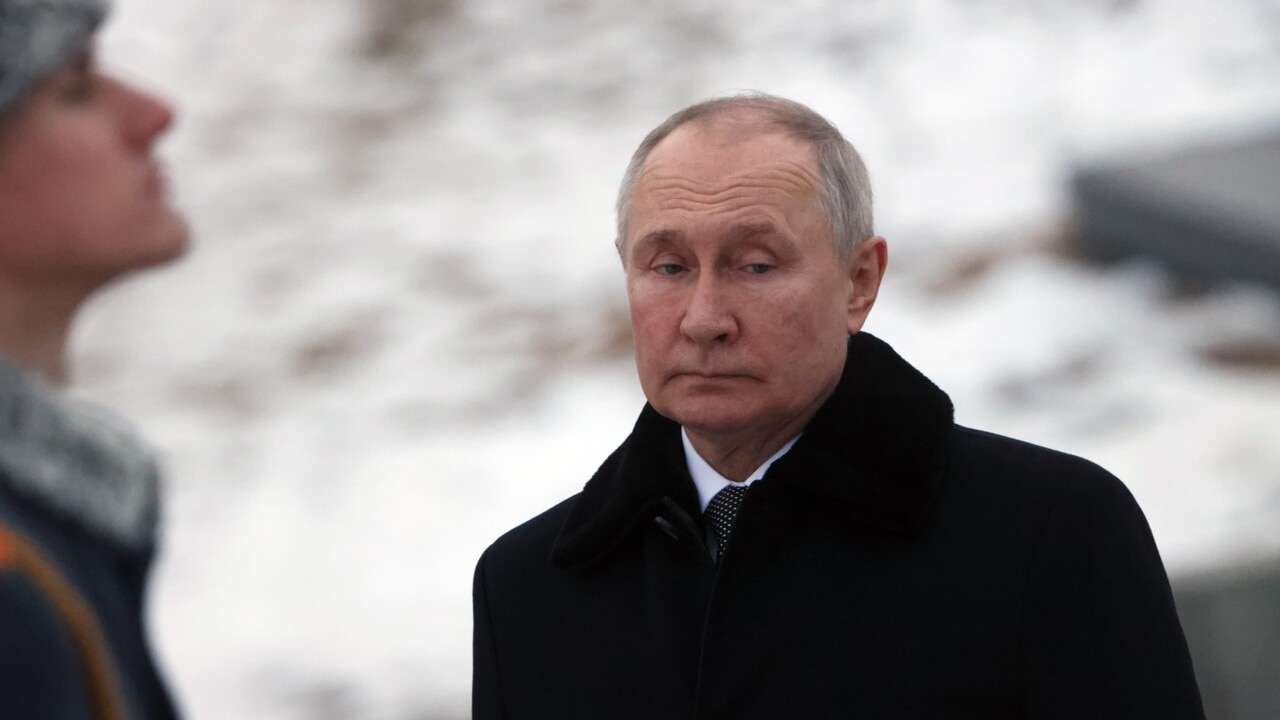
Kabaeva, 39, has been sanctioned by Britain, the European Union and the US. Speaking last week at a media event in Moscow, she described Russian state television as a “weapon of war” that was comparable in its power to the Kalashnikov assault rifle. “Let’s work!” she said, a pro-war Z symbol pinned to her black business suit.
Putin’s two adult daughters from his marriage to Lyudmila, Maria Vorontsova, 37, and Katerina Tikhonova, 36, were both sanctioned by western countries last year. The Kremlin has never publicly acknowledged their relationship to Putin, but the US said there is evidence that those around them have profited from their status. Tikhonova was previously married to Kirill Shamalov, a businessman whose wealth rocketed after he became Putin’s son-in-law in 2013.
Putin is also believed to have three children with Kabaeva, but their identities have never been confirmed. The Russian leader is thought to have a teenage daughter named Elizaveta from an affair that he had during his first term of office with Svetlana Krivonogikh, a former cleaner from St Petersburg. Krivonogikh, who became massively wealthy after her relationship with Putin, was sanctioned this month by Britain.
There is little hope that Putin will cut his losses and withdraw from Ukraine, said Stanovaya, the political analyst. Cornered and resentful, he is convinced that he has no choice but to crush what he sees as the unacceptable threat of a pro-Nato government in Kyiv, she said. In Putin’s worldview, the West bears full responsibility for provoking the war and the end of the conflict is only possible if western countries abandon their support for Ukraine.
“Putin and the Russian elite see this war as existential. If Russia loses, if there are strikes on Crimea, I think that they are psychologically prepared to use nuclear weapons,” Stanovaya said. “Putin thinks that he gave Ukraine too much time to arm itself. He believes now that if he does nothing, Russia will cease to exist in a few years. His only regret is that he didn’t begin the war earlier.”


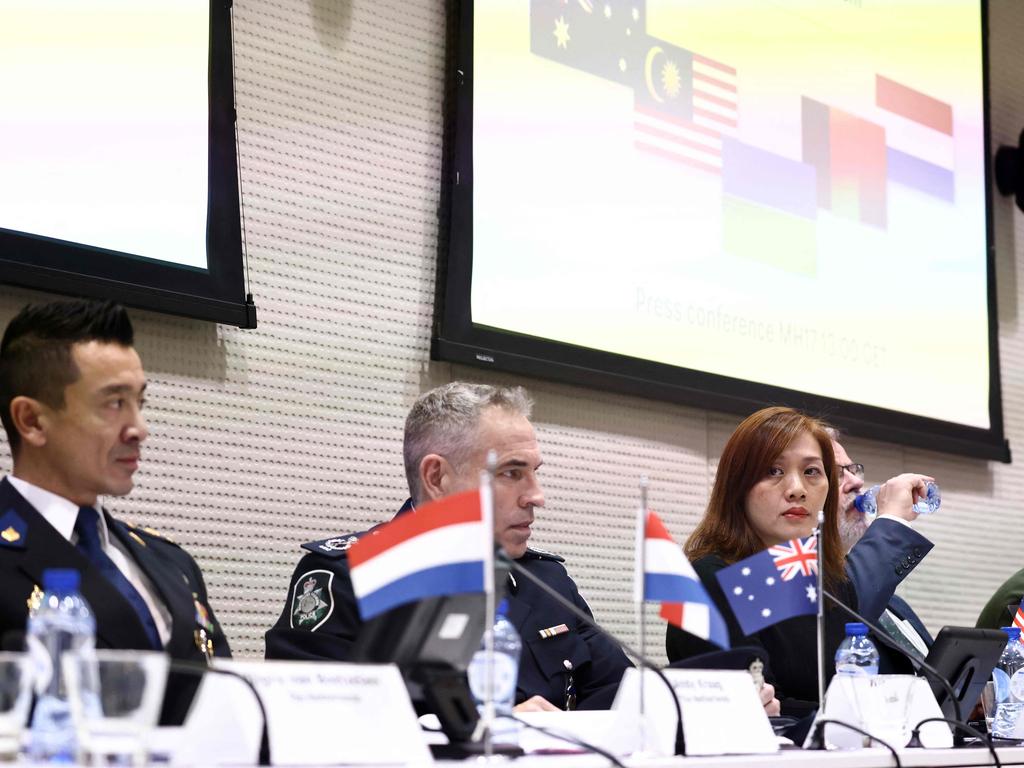
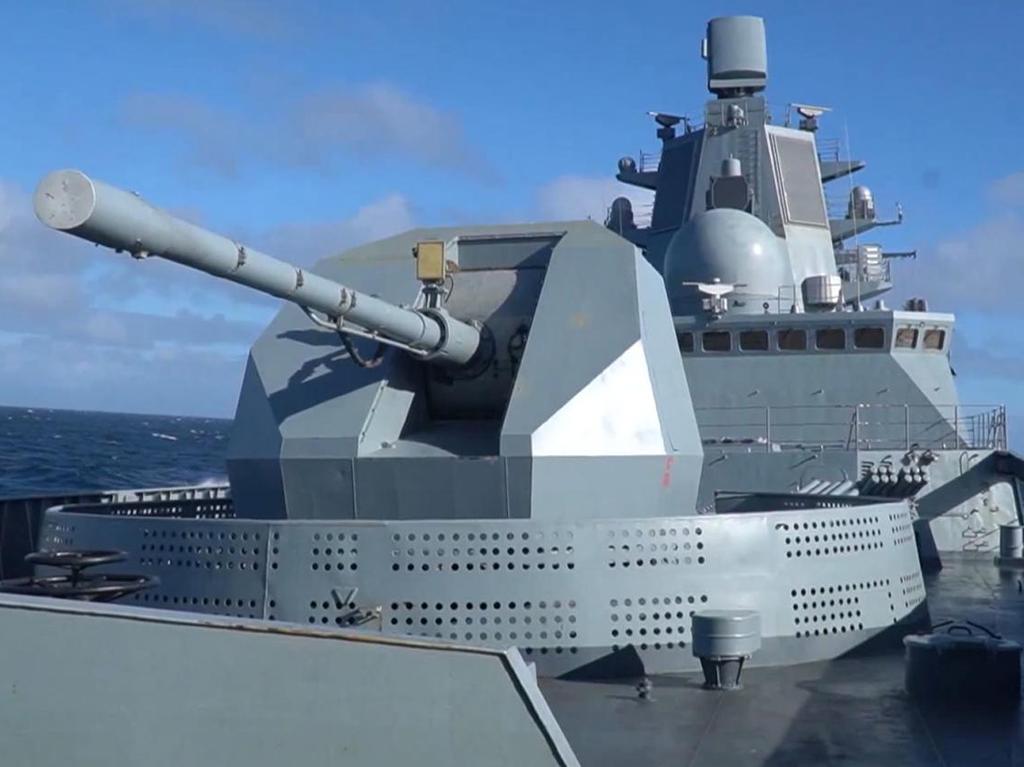
To join the conversation, please log in. Don't have an account? Register
Join the conversation, you are commenting as Logout